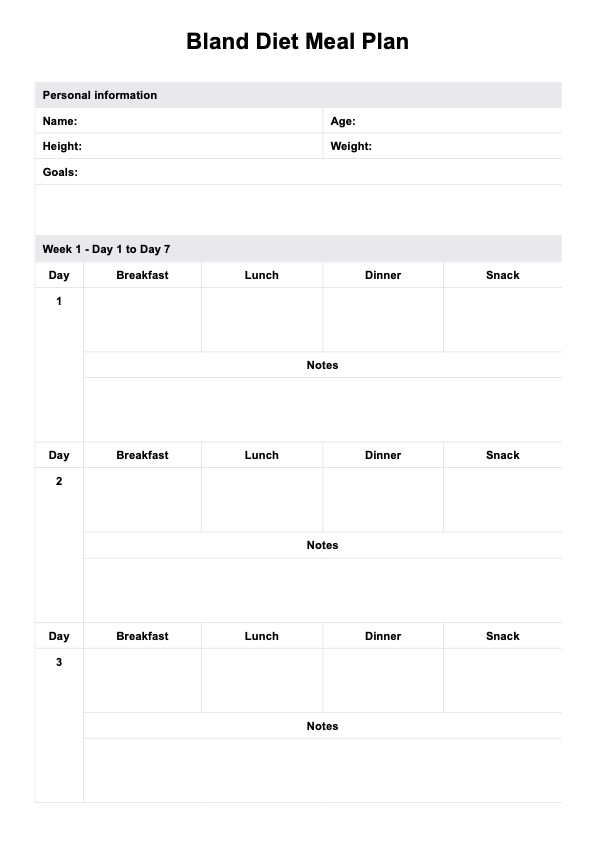A bland diet meal plan typically includes easily digestible foods such as boiled potatoes, mashed potatoes, cottage cheese, scrambled eggs, grilled chicken breast, white rice, and plain pasta. It avoids spicy foods, fried foods, raw vegetables, and highly seasoned foods to reduce strain on the digestive system.

Bland Diet Meal Plan
Download our Bland Diet Meal Plan template to enhance your patient's digestive health and overall well-being.
Bland Diet Meal Plan Template
Commonly asked questions
It’s best to avoid fruit juices that are acidic, as they can irritate the digestive tract. Instead, opt for low-fat milk or plain water. For snacks, you can enjoy fat-free or low-fat options like cottage cheese or saltine crackers for better digestion.
A bland diet helps promote digestive health by focusing on gentle foods on the gastrointestinal tract. It includes mildly seasoned, low-fat, and easily digestible foods, such as baked salmon, steamed carrots, and white bread, which can help reduce discomfort and promote smoother digestion.
EHR and practice management software
Get started for free
*No credit card required
Free
$0/usd
Unlimited clients
Telehealth
1GB of storage
Client portal text
Automated billing and online payments











